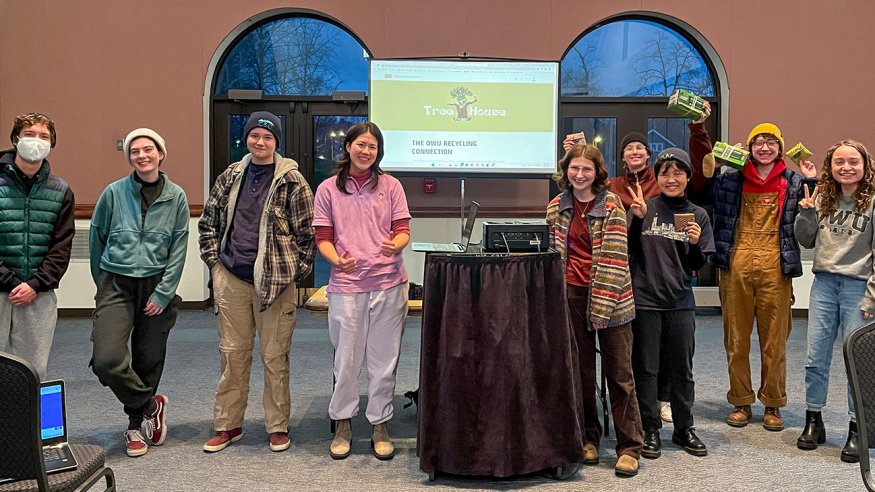
Aiding the Environment
Ohio Wesleyan Student Maps Out Recycling Options at OWU and in Delaware

Of the 8.3 billion tons of plastic waste produced since 1950, 79% is filling landfills or littering the environment, says Ohio Wesleyan University senior S.K. Bulander.
Wanting to do something to address this issue, Bulander created the OWU Recycling Connection, an online map to help residents of the Ohio Wesleyan and Delaware communities quickly determine what materials can be recycled locally and where.
An Environmental Science and English (Literature) double major from Los Angeles, California, Bulander unveiled the map Nov. 17 when they presented their 2022 Tree House project during a public meeting. Bulander resides in the Tree House, a small living unit on the OWU campus that houses up to a dozen students all interested in environmental issues.
To create the map, Bulander reached out to local people and places interested in recycling with help from Sustainable Delaware, a community organization of people interested in improving the environment. The resulting OWU Recycling Connection shares details about what is accepted, where, and in what condition -- such as being free of food debris and labels.
“It wasn’t easy,” Bulander said of the project, “but I reached out to a lot of people on Facebook, and I was able to find a decent amount of drop-off points.”
Bulander credits OWU staff member David Soliday, instructional technologist, with encouraging them to complete a house project of this caliber.
“[David] made me realize that there’s a lot of things going on around campus,” Bulander said, “and while America’s recycling system is disheartening, I hope people come around. People have already reached out to me about working together, (and) my goal is to make more of a connection.”
Bulander said they plan to continue supporting recycling and other environmental sustainability projects after graduating and, possibly, pursue a career tied to terracycling. An initiative of a New Jersey-based company called TerraCycle, terracycling works to collect non-recyclable (versus recyclable) consumer waste and turn the waste into raw materials that can be used to create new items.
